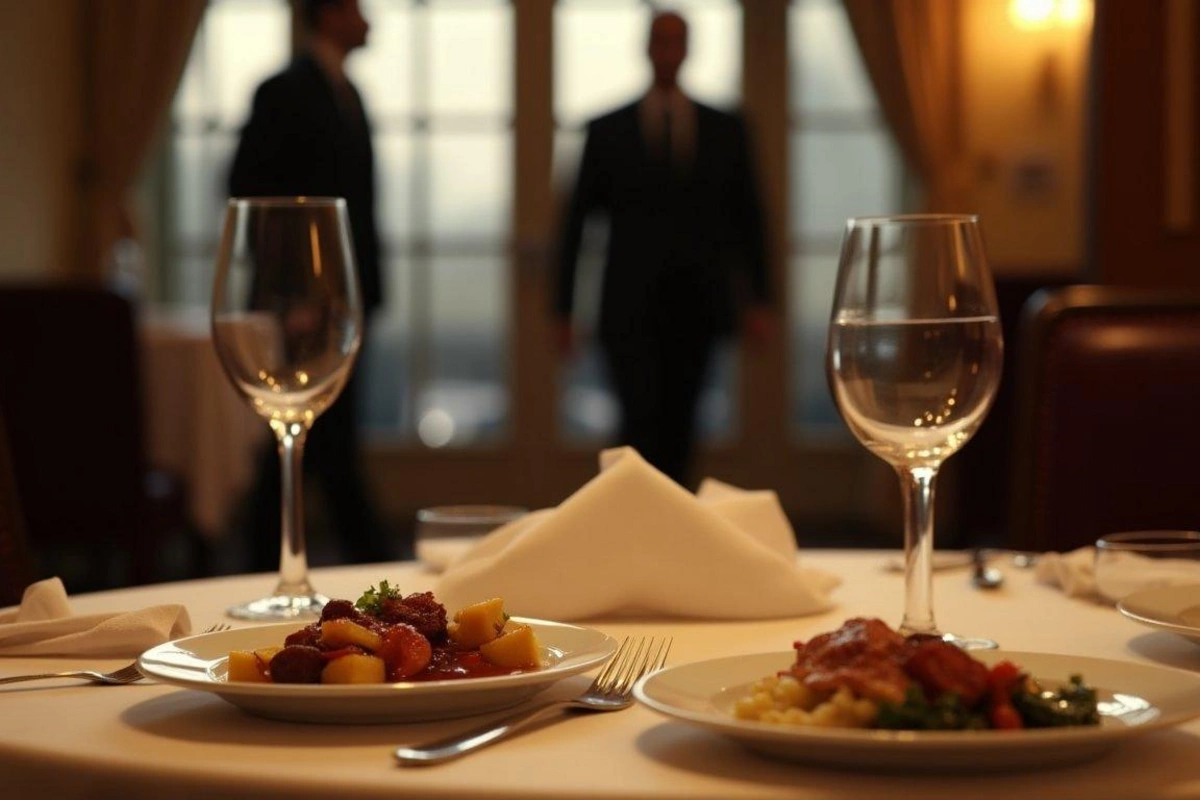Father and son defrauded a hundred restaurants for three years using an elaborate scheme

Cunning Gourmets: How Scammers Dined at Restaurants Across the Country
They operated like true masters of their craft, turning restaurant dinners into sophisticated performances. This duo - a charismatic father and his "clumsy" son - fooled cozy establishment owners for years, leaving behind only fake documents and empty wallets. Their scheme was polished to perfection, and victims didn't even suspect they had become part of a grand gastronomic deception.
How did they choose their "target"?
The scammers didn't rush into the first café they came across. They prepared thoroughly, like culinary critics before an important review. Their weapon was the internet. They spent hours studying restaurant reviews, looking for small family establishments with reputations for being "warm" and "hospitable." Such places rarely suspected foul play, and their owners were reluctant to go to the police over a few hundred euros. This was their trump card.
Dinner as a theatrical show
Once in a restaurant, the pair would put on a real performance. They ordered luxurious dinners - from exquisite appetizers to juicy steaks, desserts with crème brûlée and, of course, expensive wine. The bill consistently ran up to €150 or more. Waiters smiled, guests enjoyed themselves, and the scammers prepared for the main act.
When it came time to pay, the father would calmly take out a "broken" credit card. The terminal, of course, would decline it. Then the son, feigning awkwardness, would volunteer to run to an ATM for cash. Half an hour would pass, and he'd return empty-handed, mumbling something about "technical difficulties." The father, dramatically embarrassed, would offer to leave his ID card or social security card as collateral, solemnly promising to return tomorrow with the money. Who could suspect foul play in such an "honest" gesture?
Illusion of impunity
In reality, no one intended to return. The scammers simply reported their documents as lost, obtained new ones, and headed to the next restaurant. They never repeated themselves, choosing new cities and establishments so their trail would be lost. Restaurant owners, upon discovering the deception, most often waved it off - the sum of €150 didn't seem significant enough to waste time on the police. Thus, the pair enjoyed free dinners two or three times a week, deceiving dozens of establishments.
Exposure thanks to social media
Their gastronomic carnival might have continued indefinitely if not for one determined restaurateur. Deceived and angered, he posted photos of the documents left by the scammers on social media with an angry account of what happened. The post exploded online. Soon, 43 other restaurant owners joined him, recognizing their own story in the description. It turned out that the duo had managed to "dine" in dozens of cities, leaving behind a trail of debts and fake IDs.
The end of their tour
The police, inspired by the wave of public outcry, took the case seriously. In April 2025, the scammers were finally detained. During interrogation, the father, not losing his composure, confessed to a hundred episodes, describing his "exploits" with almost artistic enthusiasm. The son turned out to be more modest but confirmed: they had been eating at others' expense with enviable regularity, turning deception into a genuine lifestyle.
This story is not only about cunning and audacity but also about how the power of community can put an end to even the most sophisticated schemes. And restaurateurs are left with a lesson: even the most charming guest might turn out to be an actor in someone else's performance.
Similar News
# Common Vitamin Proves to Be an Aid in Treating Aggressive Brain Cancer
Scientists from the University of Calgary are studying the possibility of using high doses of vitamin B3 (niacin) to increase the effectiveness of treatment for...




 Azərbaycanca
Azərbaycanca  По-русски
По-русски  English
English 





